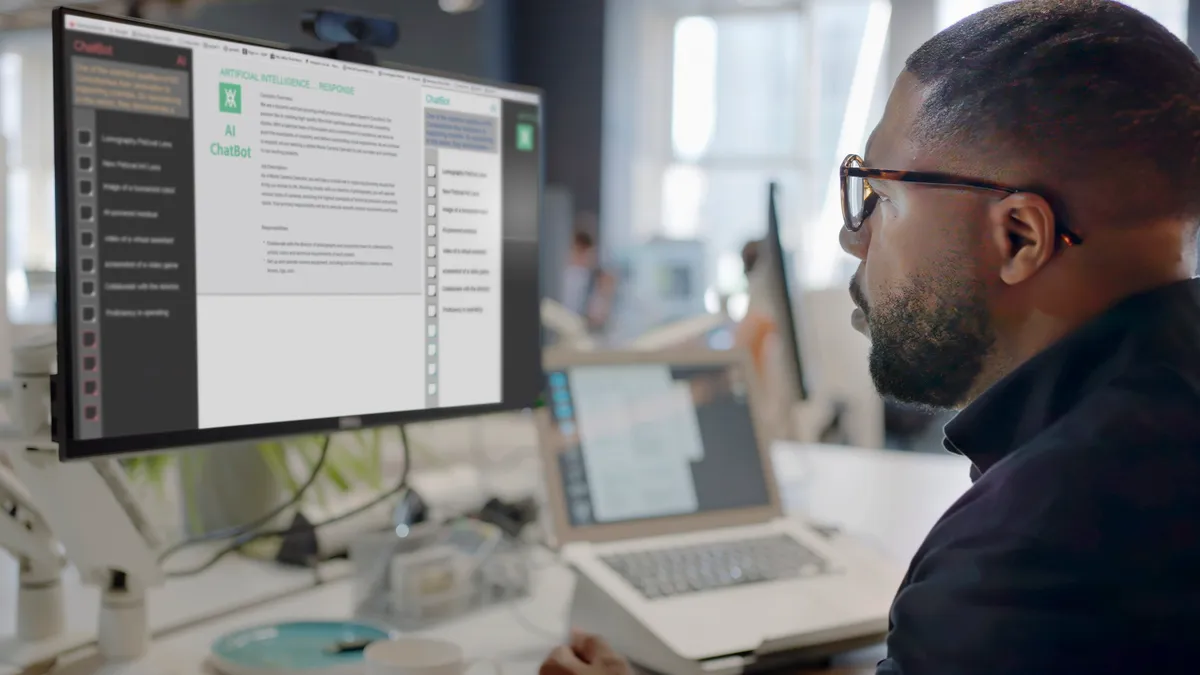Meerah Rajavel first fell in love with computers in the 10th grade while growing up in a small village in southern India. At the time, girls didn't necessarily go into careers in technology, she said, but Rajavel started taking computer science classes and eventually pursued a career in the field. Over time, she moved from working as a systems architect to leadership in technology. Rajavel joined Qlik, a data analytics company, as the company's first CIO in April 2015.
In a conversation with CIO Dive, Rajavel explained her approach to technology and how CIOs can tackle everything from cloud to Big Data. This conversation has been edited and condensed.
In a nutshell, can you explain what you’re responsible for as Qlik’s CIO?
Rajavel: At Qlik, I see my role as a leader who really leverages technology as a vehicle to further business objectives.
My team provides every single infrastructure in the company the employees use, every single business platform and business application capability. I also look at my role as not just doing this, but do it in a safe fashion. So I'm responsible for corporate security.
Do you miss working with the systems every day?
Rajavel: Actually, honestly, I am still a geek at heart. I am more than a geek, I am also a people person. So to me, my people and my personal touch is ahead of my geek.
How do you and your team approach the use of technology at Qlik?
Rajavel: My team's vision is be the strategic technology partner of Qlik.
There are three lenses we use. Our first lens is, are we using technology for value of the business? If there is value, the second lens is, is it relevant to our business? You can be relevant in many many ways, but you want that relevance to be very specific. Our third lens is, is the relevance going to enable growth or efficiency or superior user experience?
Anything you want to use for the business, run it through these three lenses. If it doesn't filter through, then probably it’s not the right decision.
What is your biggest challenge at Qlik when working with enterprise technology?
Rajavel: Personally, I'm a year in. We are actually having a journey, I just want it to go faster. For me, the biggest challenge is our ability to produce and consume. Sometimes our production capacity is lower than our consumption capacity. Sometimes we are ready to produce more than consume. So it’s kind of this delicate balance.
I'm the first CIO in Qlik. Part of it is really making IT more strategic to the business. So there's quite a few transformations we are going through.
At the end of the day, it’s always people, process, technology. Technology is important but without your people and the right process, technology can't be successful.
What is the biggest mistake you see companies making in their approach to technology?
Rajavel: One mistake is following the bandwagon without understanding the relevance of it to your business.
To me, it’s very important as businesses we don't get pulled into the trends. Machine learning and IoT are probably the two big things that you're going to continuously (hear) people say: If you're not doing, you're not cool.
I think the second mistake is living in the past.
I call it differentiation for value. If something is becoming a commodity, do you really want it to build your own commodity or build a variation on top of it that's of value to you?
How do you work to secure a company?
Rajavel: Actually knowing and having security at multiple layers and technology is crucial, but even more important is having a good operating procedure and education (for) the population about what is security. It's much easier to break social engineering to get through the security loophole than someone sitting and devising a plan to break a firewall.
The focus should not just be on prevention. Response and containment is even more crucial.
It is really important when you are attacked that you have good monitoring, a good response system and if it's really intrusive, a good containment procedure. Speed is really an important thing when it comes to security.
How do you view cloud technology?
Rajavel: In my opinion, cloud has leveled the playing field. Ten years back, if you needed a sophisticated supply chain prediction, you (would) need to buy this massive SaaS implementation with an ERP that needs to work together for you to have all the Monte Carlo-type of modeling to happen.
But today, with the cloud, I can be this niche company who is trying to get some manufacturing done from some place in China along with some assembly getting done somewhere else in the world. That whole supply chain management, I can do it. All I need to do is get on a SaaS cloud and a suite cloud or some of these niche cloud solutions. I'm up and running on Day One.
So cloud literally levels the playing field. The industrial power of ERP and CRM is not -- any more -- large companies' competitive advantage.
It is not whether cloud is here to stay. It's more of: It's here. It's proven. It has crossed the chasm.
What are the biggest challenges a CIO faces?
Rajavel: Speed. Speed is the currency in today's world. It’s the number one challenge for IT. You ask any business person: What do you want of your IT? The two words you hear are speed and agility. Of course, they assume you provide a stable environment (and) security.
To me, cloud enables that speed value proposition. It also helps you to leverage economies of scale.
How do you keep up with new technology and trends?
Rajavel: My philosophy is we can get lost if you're trying to chase the tail of all the different technologies. Innovation has to be focused and it has to be structured experimentation.
From an innovation point of view, I think IT needs to have a conversation to say what are the big business problems that the business is trying to solve, then pick and choose to say which areas (need work). If you don't (innovate) you're not alive, but you cannot try to do everything.
How can companies use Big Data to further their place in the industry?
Rajavel: To me data is insight. Insight is power. Anytime you have insight, it makes you more powerful in what you need to do. To me, it's putting the power in the hands of the business (that) is important. When we talk about data, I think we really need to look at it from an actionable insight point of view, otherwise it's much easier to get lost in the gutter.
What people are trying to realize is that Big Data by itself is not actually useful. You need to have a business context and you need to have a business objective.
The data is putting the associations in place. I think where it is going to go is that non-linear association. I think there is a little bit more maturity that needs to happen in the industry, but it is picking up and the businesses are leveraging Big Data with a business outcome.






















